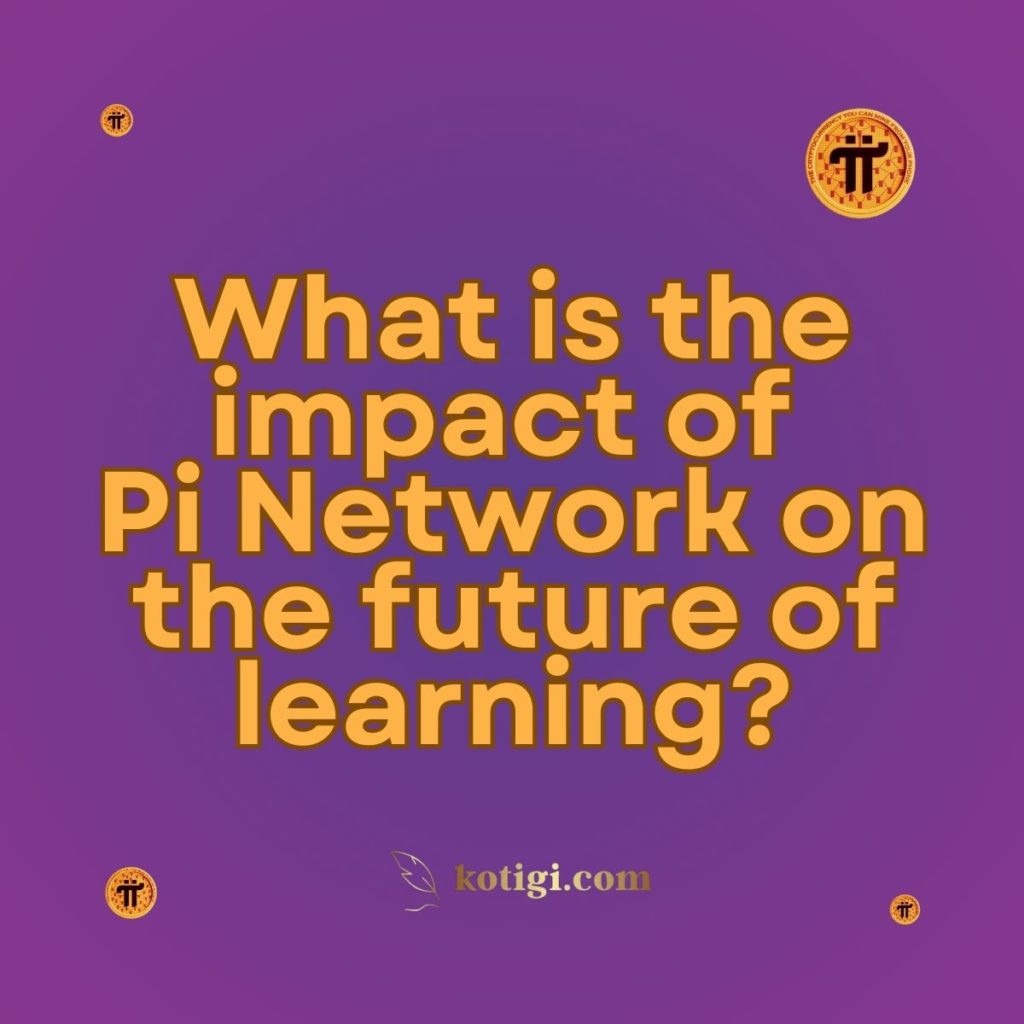
What is the impact of Pi Network on the future of learning?
The Pi Network is set to revolutionize the future of learning by providing decentralized, accessible educational resources, fostering collaborative environments, and promoting lifelong learning. This article explores how the Pi Network can influence education systems, enhance skill acquisition, and empower individuals to take control of their learning journeys.
Introduction
As we move further into the digital age, the landscape of education is rapidly evolving, driven by technological advancements and changing societal needs. The traditional classroom model is giving way to more dynamic, flexible approaches that emphasize learner engagement and adaptability. The Pi Network, a decentralized digital currency platform, offers unique opportunities to transform the future of learning by providing accessible resources, fostering collaboration, and encouraging continuous education. This article examines the various ways the Pi Network can impact learning, focusing on accessibility, community engagement, and the shift towards lifelong learning.
Enhancing Accessibility to Education
One of the most significant advantages of the Pi Network is its potential to enhance access to educational resources, making learning more inclusive and widespread.
Online Learning Platforms
The Pi Network can serve as a foundation for various online learning platforms that provide users with access to a wealth of educational content. By offering courses, tutorials, and workshops across different subjects, the network democratizes education, enabling individuals from diverse backgrounds and locations to engage in continuous learning. This accessibility ensures that anyone with an internet connection can develop their skills and knowledge, breaking down geographical and financial barriers.
Resource Sharing and Collaboration
Within the Pi Network, users can share educational resources, tools, and insights, creating a collaborative environment that enriches the learning experience. This resource-sharing capability encourages users to contribute their expertise, enhancing the overall quality of education available within the network. By facilitating collaboration, the Pi Network fosters a culture of collective learning where individuals can benefit from one another’s knowledge and experiences.
Overcoming Financial Barriers
Traditional education often comes with significant financial burdens, including tuition fees, textbook costs, and other expenses. The Pi Network can help alleviate these barriers by offering free or low-cost access to learning materials and resources. Additionally, as users earn Pi through their participation in the network, they can reinvest those earnings into their education, further promoting financial accessibility.
Fostering Collaborative Learning Environments
Collaboration is key to effective learning, and the Pi Network can create opportunities for users to engage in cooperative educational experiences.
Peer-to-Peer Learning
The decentralized nature of the Pi Network promotes peer-to-peer learning, allowing users to connect with one another to share knowledge and skills. This collaborative approach enables individuals to learn from their peers, ask questions, and engage in meaningful discussions that deepen their understanding of various topics. By leveraging the collective intelligence of the network, users can enhance their learning outcomes and build valuable relationships.
Community Engagement
The Pi Network can facilitate the formation of learning communities where individuals with similar interests come together to collaborate and learn. These communities can provide support, motivation, and accountability, enhancing the overall learning experience. By engaging with others in a community setting, users can exchange ideas, share resources, and collaborate on projects, fostering a sense of belonging and shared purpose.
Group Projects and Initiatives
Collaborative projects can be easily organized within the Pi Network, allowing users to work together on initiatives that promote learning and skill development. These projects can range from creating educational content to conducting research or developing new technologies. By engaging in group activities, users can gain hands-on experience, apply their knowledge in practical settings, and develop important teamwork skills that are essential in today’s workforce.
Promoting Lifelong Learning
In a rapidly changing world, the concept of lifelong learning is more important than ever. The Pi Network can play a vital role in promoting this mindset among its users.
Encouraging Continuous Skill Development
The Pi Network emphasizes the importance of ongoing skill development and education. By providing users with access to a variety of learning resources and tools, the network empowers individuals to pursue their educational goals continuously. This focus on lifelong learning ensures that users can adapt to evolving job markets and technological advancements, enhancing their employability and career prospects.
Cultivating a Growth Mindset
The culture fostered by the Pi Network encourages users to adopt a growth mindset, viewing challenges as opportunities for learning and improvement. This mindset is essential for personal and professional development, as it promotes resilience, adaptability, and a willingness to explore new ideas. By creating an environment that supports experimentation and learning from failures, the Pi Network empowers users to take charge of their learning journeys.
Supporting Career Transitions
The Pi Network can assist individuals in navigating career transitions by providing resources and guidance for acquiring new skills relevant to emerging fields. Users can access training programs, connect with mentors, and engage in collaborative projects that enhance their skill sets. This support is invaluable for individuals seeking to shift their careers or explore new opportunities in an ever-changing job market.
Leveraging Technology for Enhanced Learning Experiences
The Pi Network harnesses technology to create engaging and interactive learning experiences for its users.
Gamification of Learning
The integration of gamification elements within the Pi Network can enhance the learning experience by making education more engaging and enjoyable. Users can earn rewards for completing courses, participating in discussions, and sharing knowledge, motivating them to actively engage in their learning journeys. This gamified approach can help users retain information better and develop a sense of achievement as they progress through their educational pursuits.
Utilizing AI and Data Analytics
The Pi Network has the potential to leverage artificial intelligence (AI) and data analytics to personalize learning experiences for users. By analyzing individual learning patterns and preferences, the network can provide tailored recommendations for courses and resources that align with users’ goals. This personalized approach enhances the effectiveness of learning, ensuring that individuals can focus on the skills and knowledge most relevant to their needs.
Interactive Learning Tools
The Pi Network can incorporate interactive learning tools, such as quizzes, simulations, and virtual classrooms, to enhance user engagement and participation. These tools allow users to actively participate in their education, reinforcing their understanding of complex concepts and facilitating collaboration with peers. By creating an interactive learning environment, the Pi Network can foster deeper learning and retention of information.
Conclusion
The Pi Network is poised to make a significant impact on the future of learning by enhancing accessibility, fostering collaboration, promoting lifelong education, and leveraging technology to create engaging learning experiences. By empowering individuals to take control of their educational journeys and equipping them with the resources they need to succeed, the Pi Network is helping to shape a more inclusive and dynamic learning landscape. As the educational landscape continues to evolve, the Pi Network will play a crucial role in facilitating transformative learning experiences for users worldwide.
Key Takeaways
- Enhancing Accessibility to Education: The Pi Network democratizes access to learning resources, allowing individuals from diverse backgrounds to engage in continuous education.
- Fostering Collaborative Learning Environments: The network promotes peer-to-peer learning, community engagement, and group projects, enriching the overall learning experience.
- Promoting Lifelong Learning: By emphasizing ongoing skill development and a growth mindset, the Pi Network supports users in adapting to changing job markets and pursuing their educational goals.
- Leveraging Technology for Learning: The integration of gamification, AI, and interactive tools within the Pi Network enhances user engagement and personalizes learning experiences.
- Empowering Individuals: The Pi Network equips users with the resources and support needed to take charge of their learning journeys, ultimately shaping a more dynamic and inclusive educational landscape.





